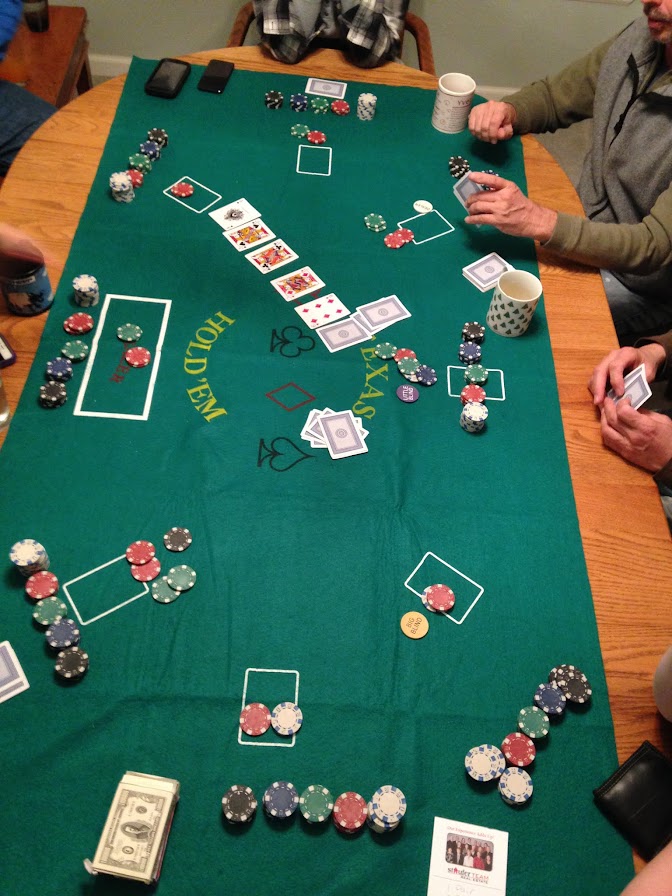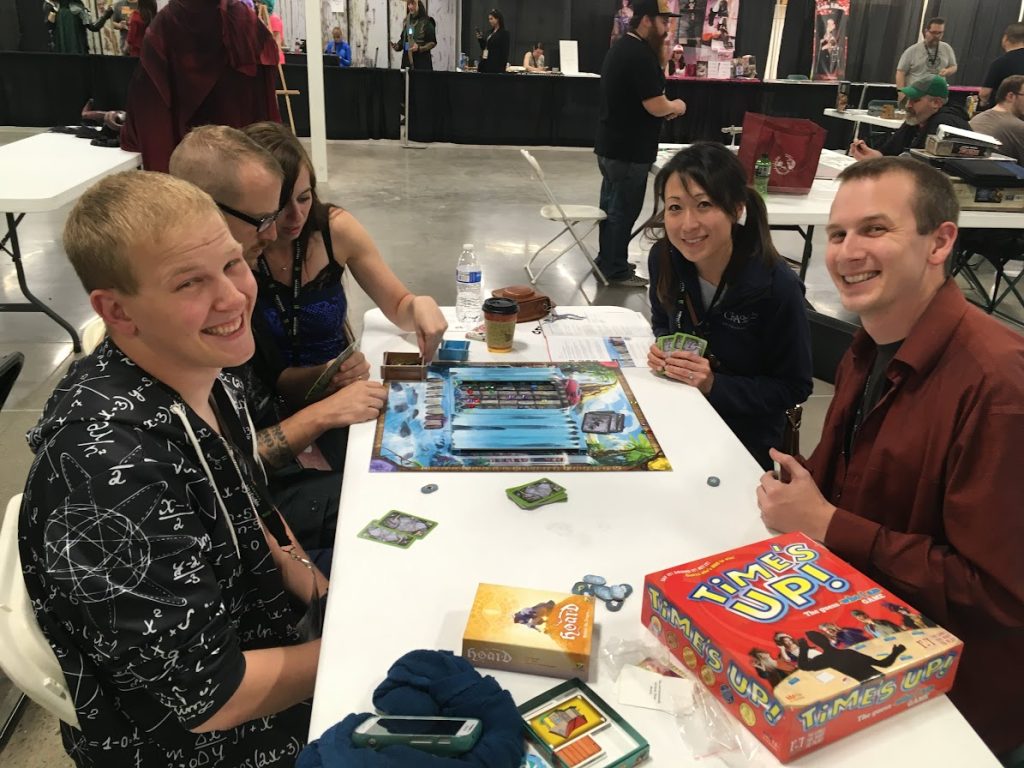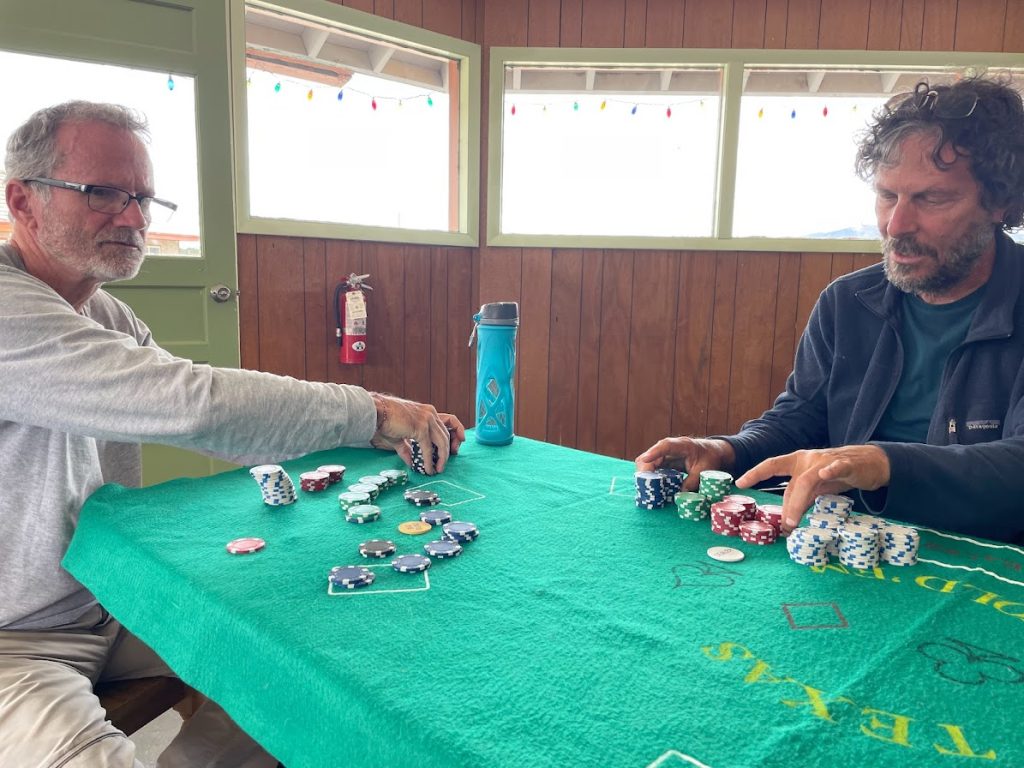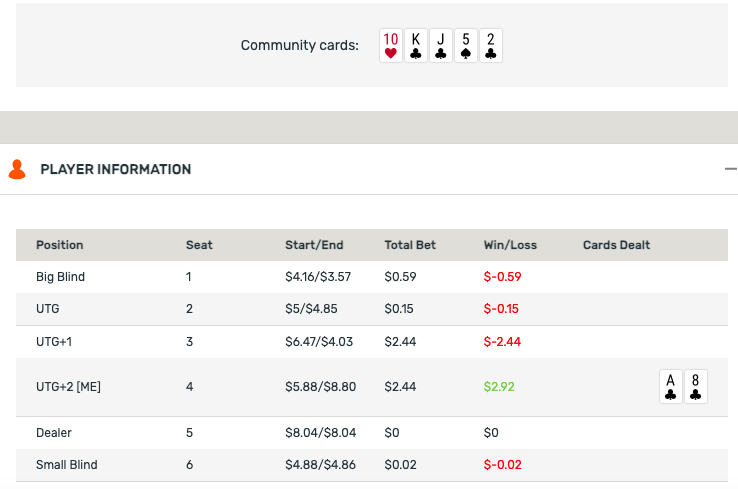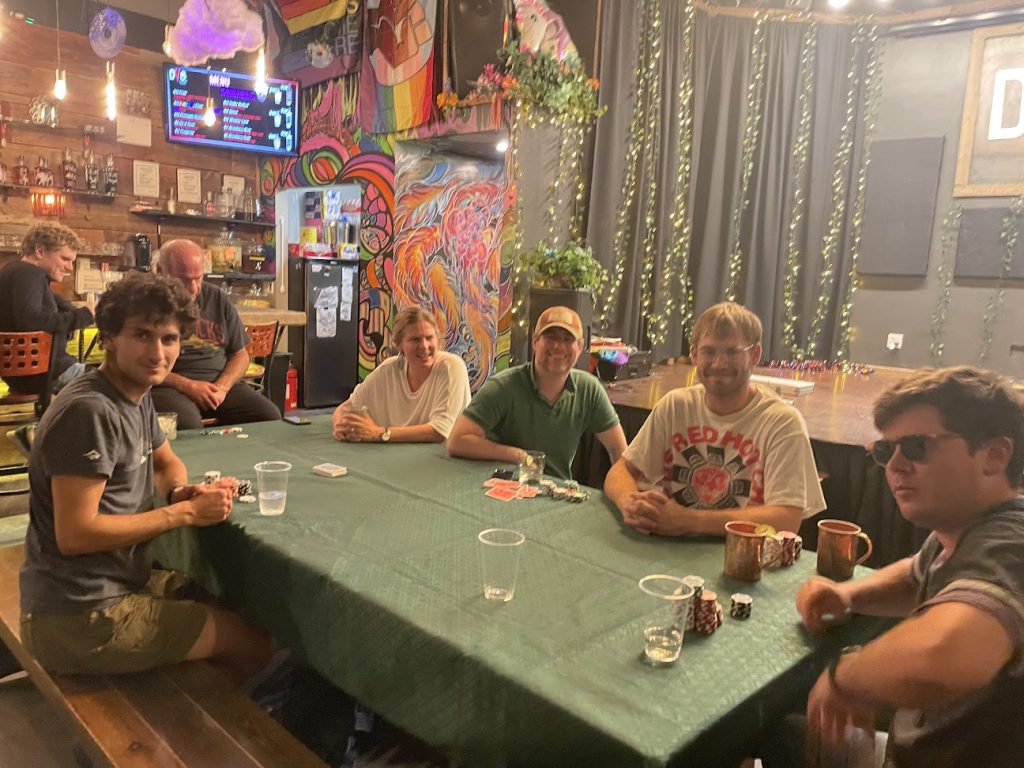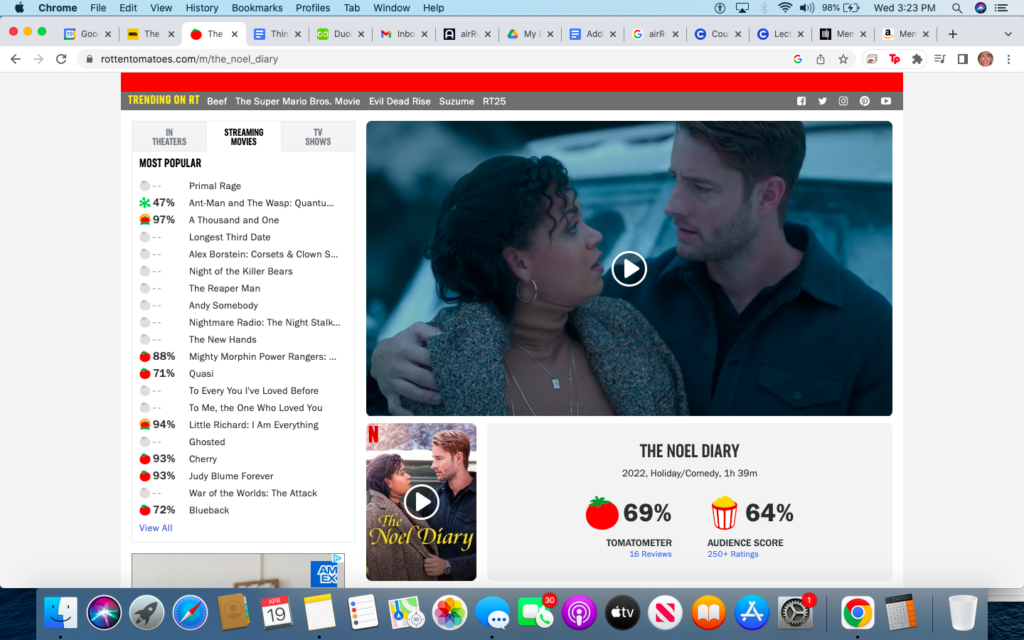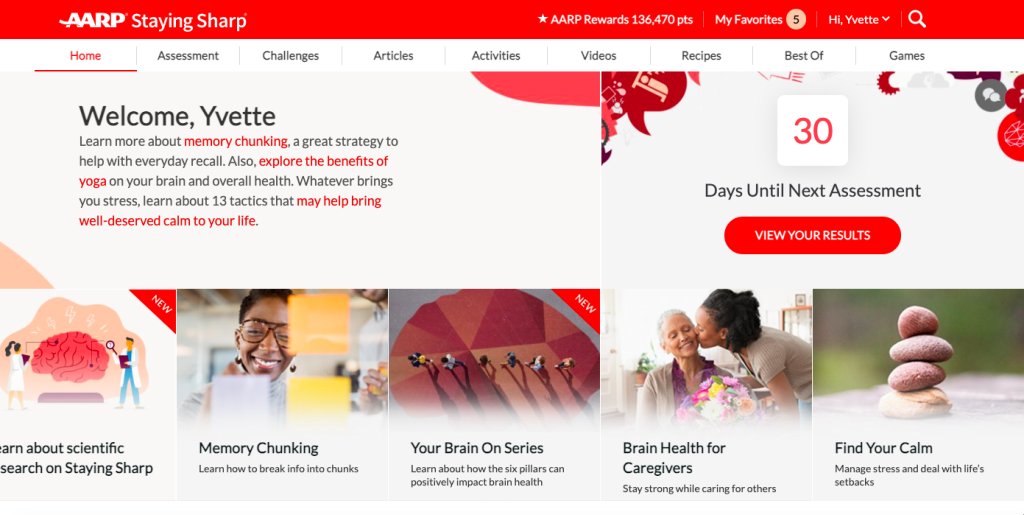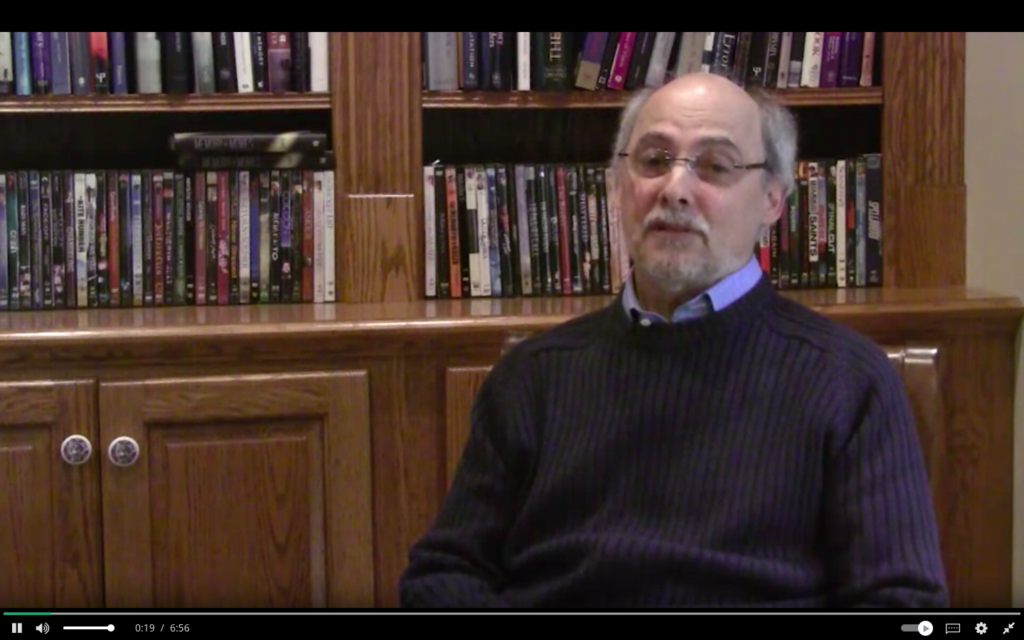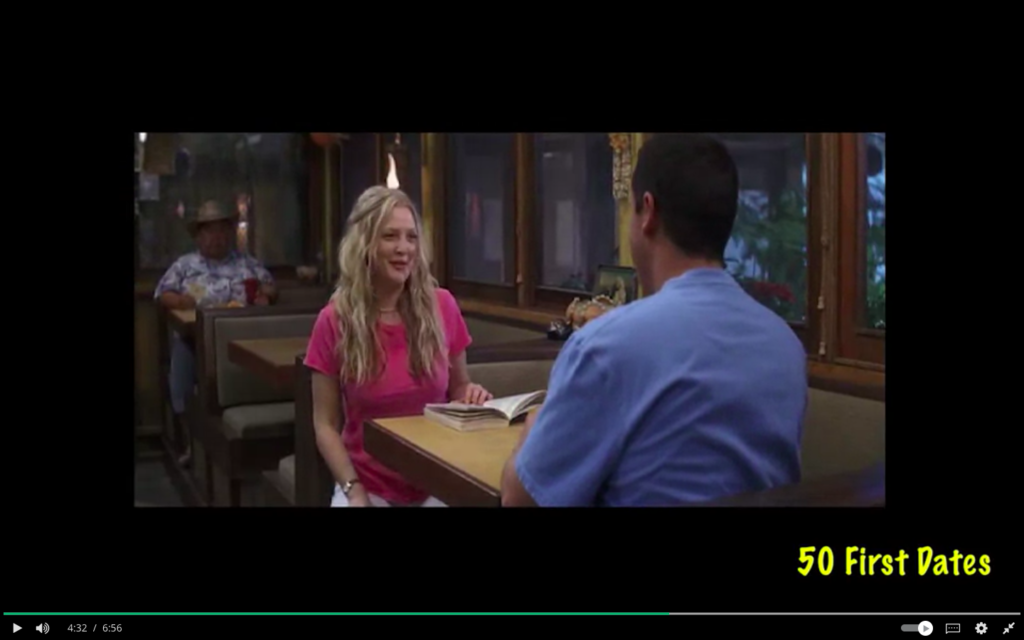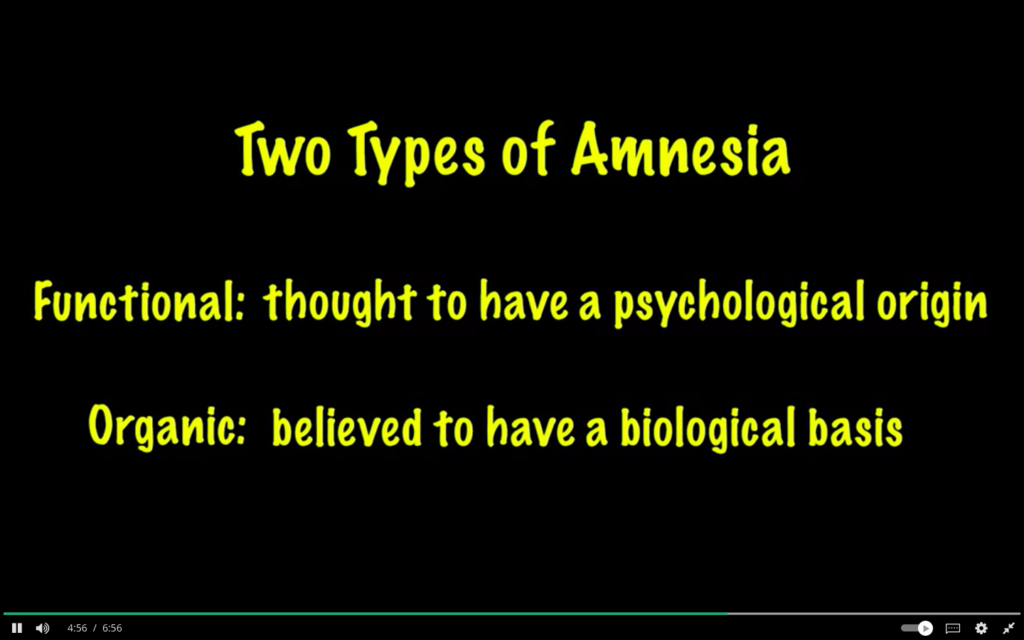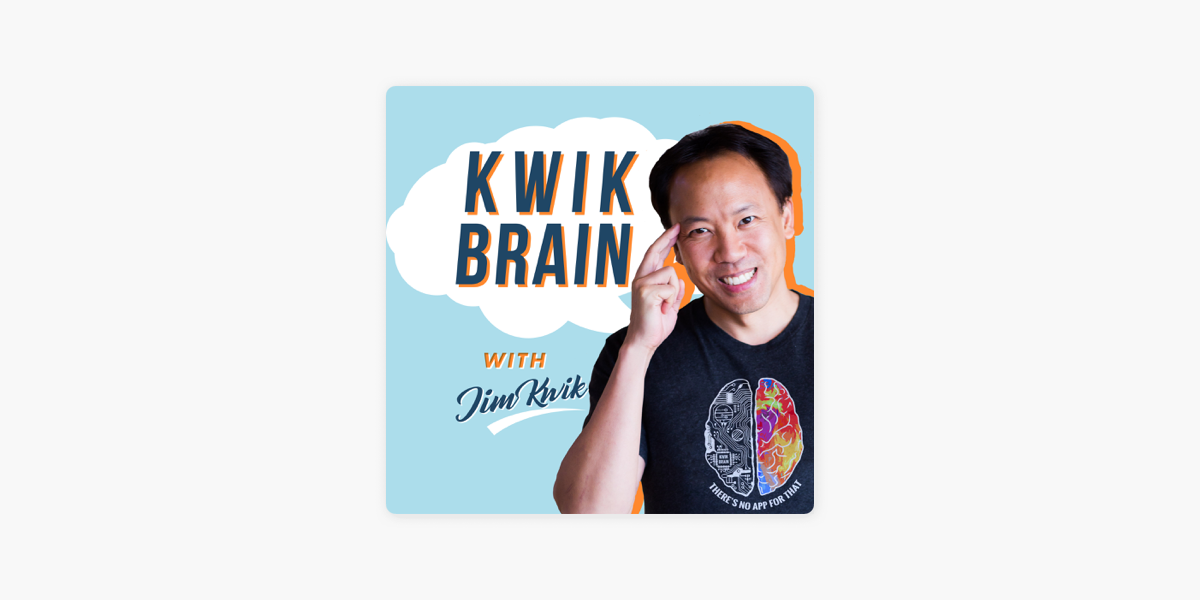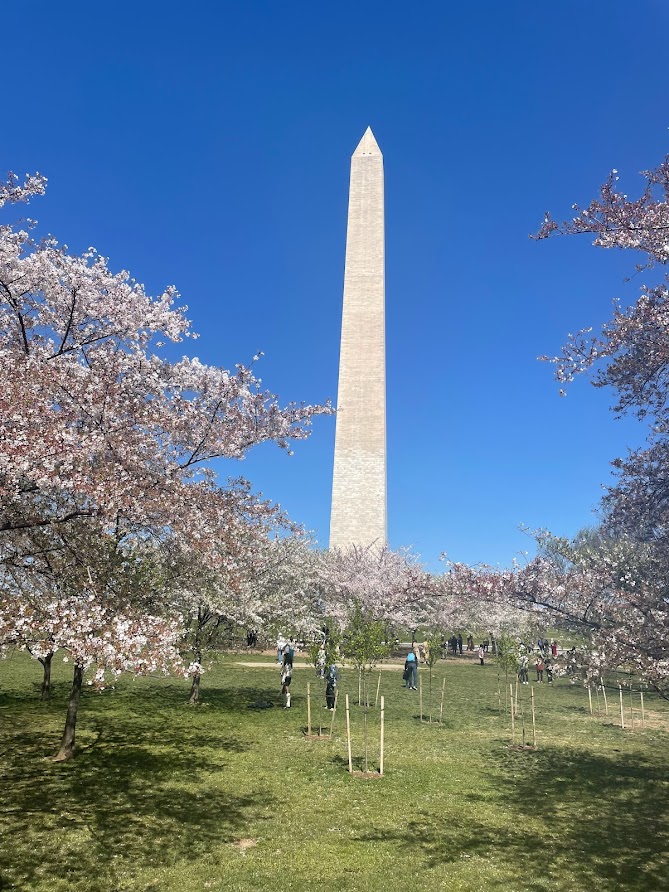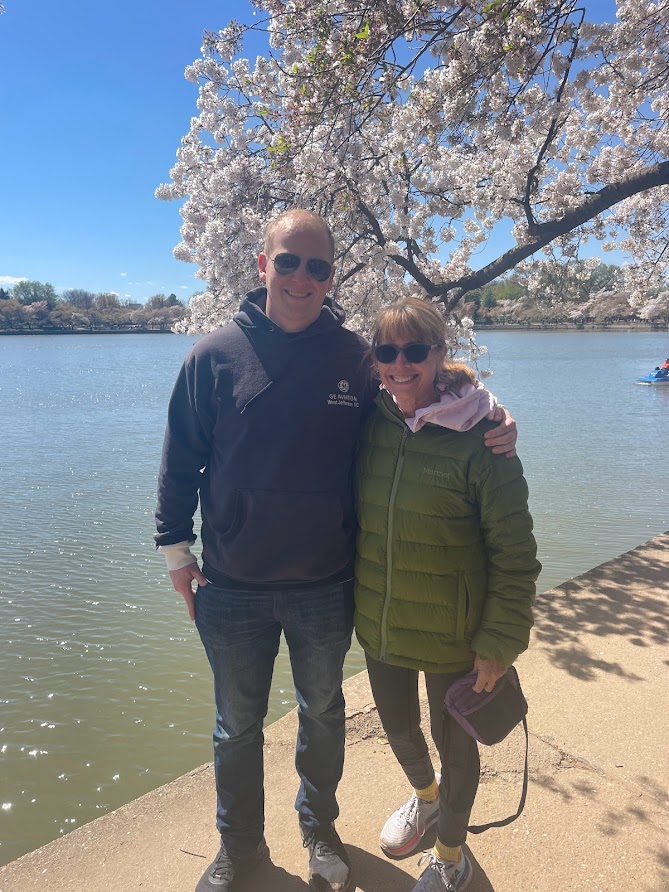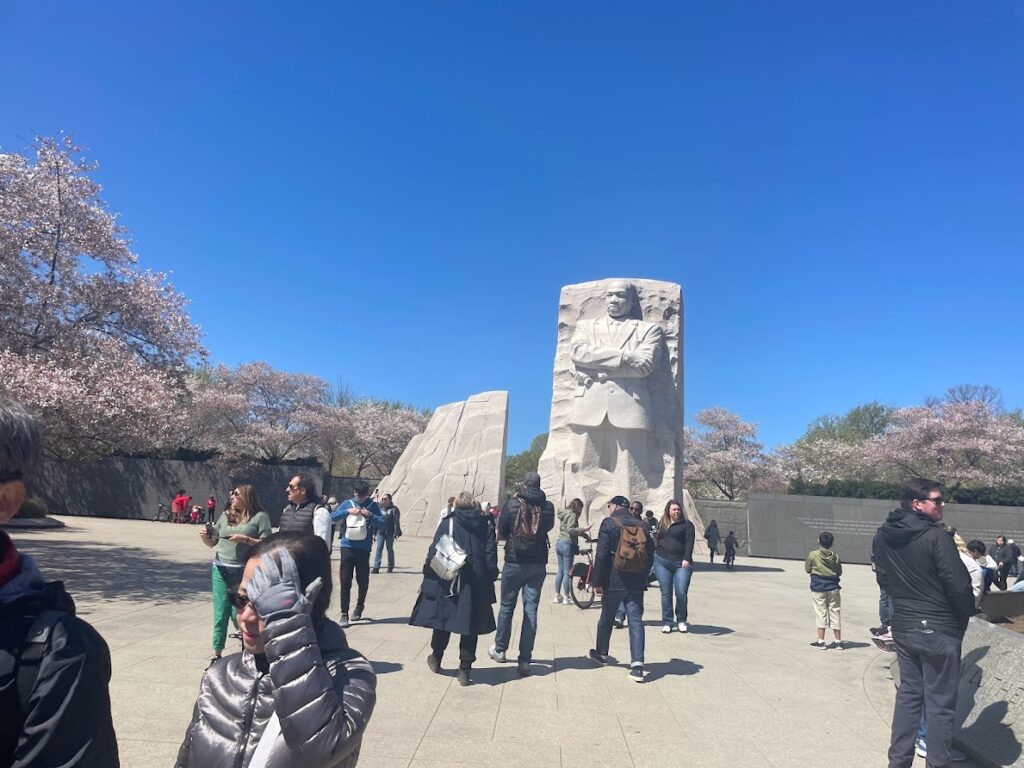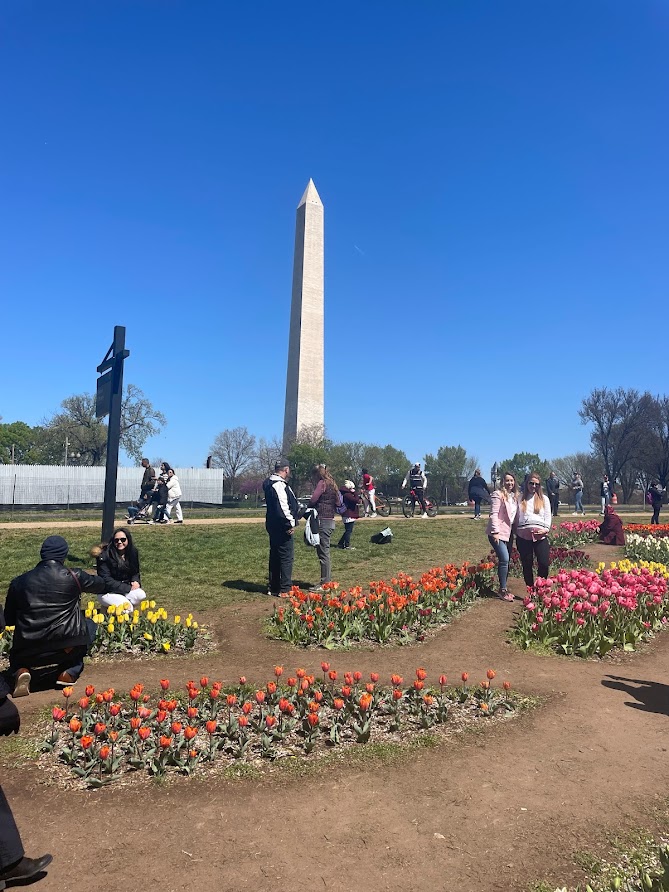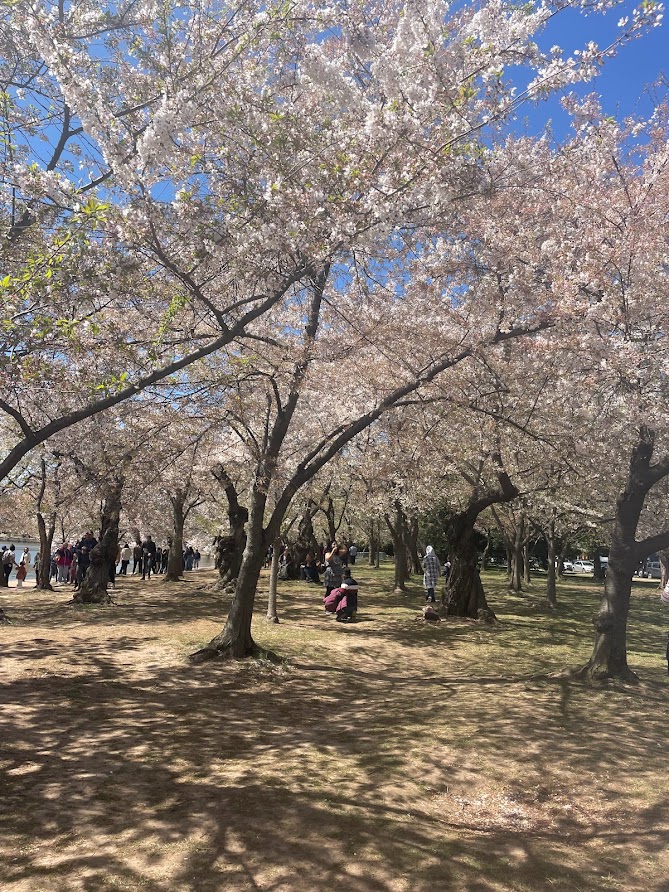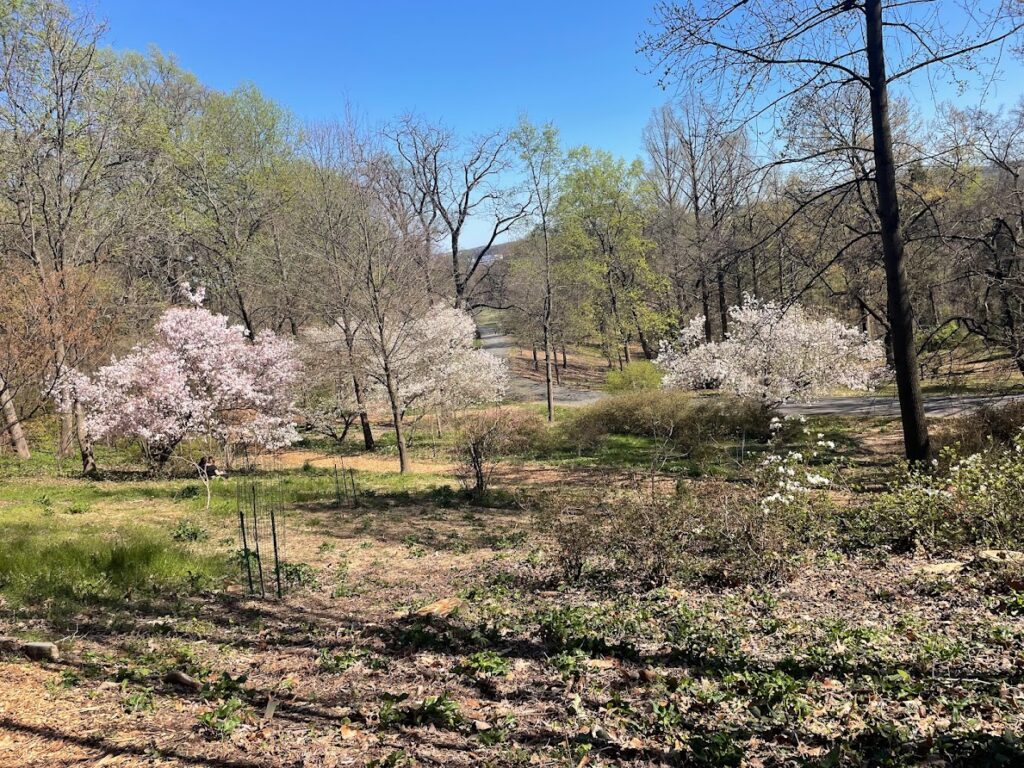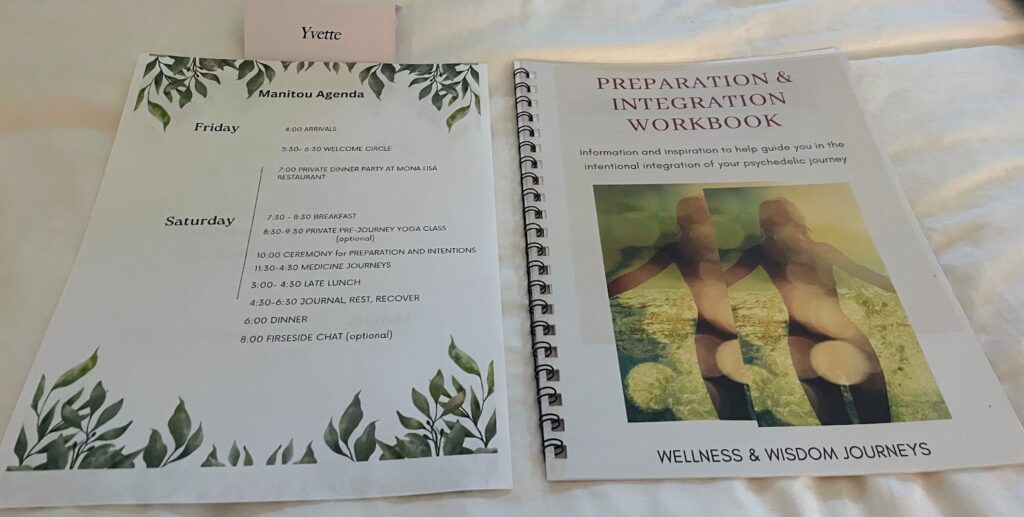
Psilocybin can be good for your brain!
When I started my “Year of Learning” project, I didn’t expect “psilocybin” to be on my list of something to try or even learn about!
Unlike many of my peers, I never tried “magic mushrooms” (or even pot!) in my youth. I’ve always been sort of a nerdy rule-following health nut, and was never even tempted by any kind of drugs. I remembered the “This is Your Brain on Drugs” commercial and the last thing I wanted was to fry my brain.
But for the past couple of years I’ve been really interested in Brain Health, and was amazed to learn that psilocybin (“magic mushrooms”) has been proven, with proper usage, to actually be good for your brain!
Since talking to Neuroscientist Susan Greenfield on my podcast, I’ve known that building neuroplasticity in our brains is a key to preventing Alzheimer’s.
Learning that psilocybin actually builds that neuroplasticity… improving our brain health, rather than destroying it, was an incredible discovery!
Besides wanting to build neuroplasticity to prevent Alzheimers, I’ve learned that building these pathways in our brains helps us gain clarity and cognitive skills, helping us find new ways to solve problems.
How does one try psilocybin?
Despite the discoveries of the benefits of psilocybin, there is still a lot of stigma and legalities associated with its use. I live in Colorado where possession and use are decriminalized.
However, I don’t take any mind-altering substance lightly. Taking psilocybin does come with risks. I wanted to be fully informed, safe, and legal.
I got my opportunity when I found out through Facebook that one of my trusted friends, a therapist, was co-hosting a women’s wellness retreat in Manitou Springs, which included a guided plant-based medicine “journey.”
The Psilocybin Journey
The Psilocybin Journey was the original reason I signed up for this retreat. I had wanted to try psilocybin in a safe and controlled environment and, without me even seeking it out, the opportunity presented itself.
The “journey” itself, for me, was like conscious dreaming. We were in a comfortable bed with eyeshades and headphones, listening to curated music, designed to evoke different emotions and heighten the experience. For me, it did evoke a variety of emotions including grief as well as gratitude and contentment. At the same time, with eyes closed, there were the psychedelic images, shapes, and colors that seemed to flow with the music and my thoughts.
I especially appreciated the “integration session” in which the group shared their experiences with their journeys. It was wonderful to have the guidance of Heather and Monica who reassured us all of the magic of the mushroom. The “download” and neuroplasticity will continue in the coming weeks, helping us gain clarity in areas that we may have previously felt stuck.
They are passionate about removing the previous stigma associated with mushrooms and instead honoring it as plant-based medicine, designed to heal.
I’m excited to think that this acceptance and appropriate use will become more available for people over time, helping people to overcome depression and PTSD.
Sharing the experience with Megan
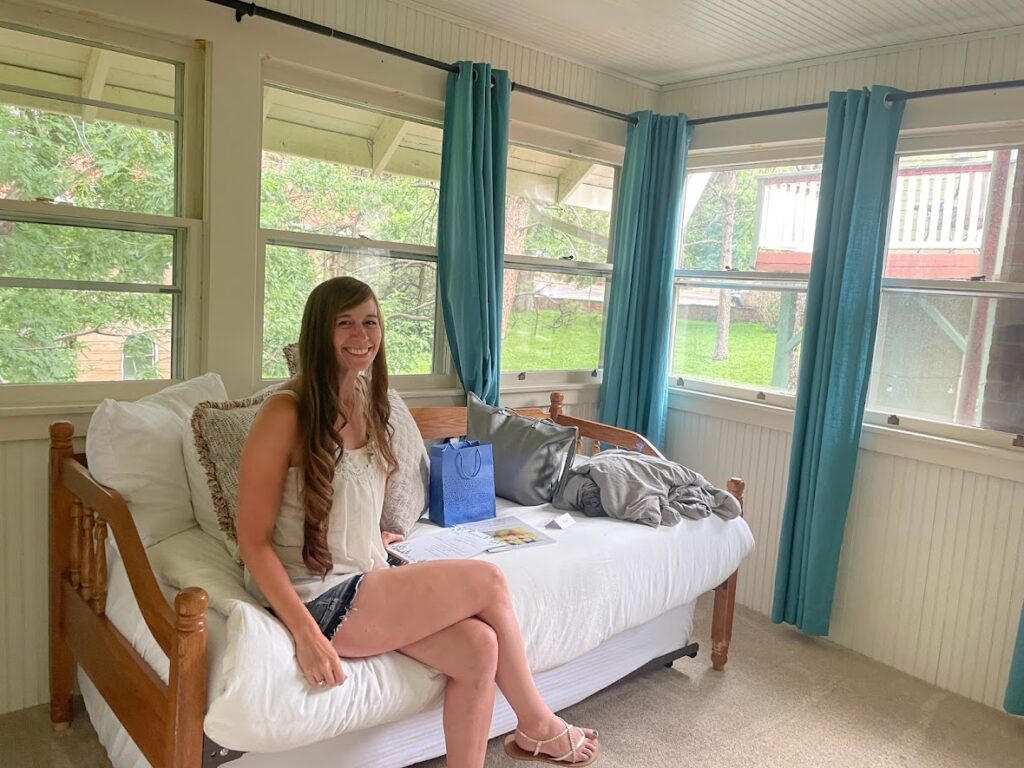
It’s funny how this memorable weekend materialized. I’m quite logical so don’t talk too much about ‘manifestations’ or anything too ‘woo woo.’ However, I do believe in being intentional about living our dreams.
One of my primary intentions is to spend time with the people I love.. to share new and memorable experiences and adventures with them. I don’t often get the opportunity to have a 1:1 adventure with my daughter, Megan. She’s married with two kids of her own so her priority, of course, is her own family. I felt so lucky and excited that she was able to join me on this special women’s weekend! She even drove us (no hands!) down to Manitou Springs in her new Tesla!
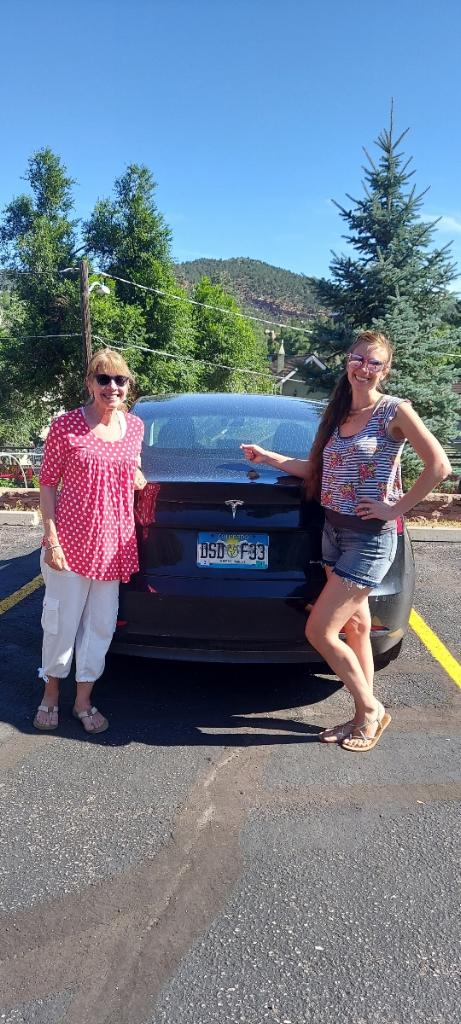
Indulging in a Women’s Retreat
Besides the adventure of trying psilocybin for the first time, there were so many other memorable moments throughout the weekend.
I’ve never splurged on a “retreat” before. It always felt too indulgent. But this is the time of life to try things I’ve never done before… not just psilocybin, but also treating myself to a luxury weekend. I’m so glad I did!
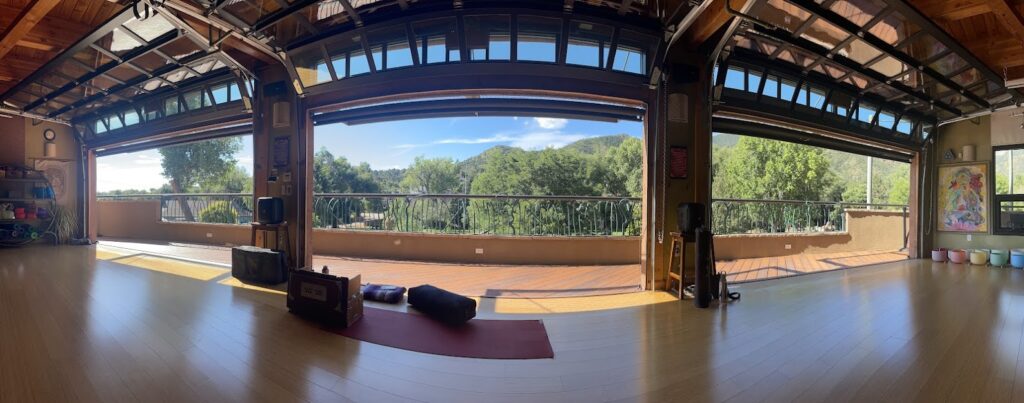
Admittedly, yoga is one of my least favorite activities. It seems to be the main attraction at most women’s wellness retreats. At this retreat, the main attraction, of course, was the psilocybin journey, but an optional pre-journey yoga class was offered.
Wanting to take advantage of everything offered, I joined, and was, once again, surprised at how the experience exceeded expectations. The beauty of the studio with the magnificent view inspired awe with every stretch. The yoga instructor repeatedly reminded us that there were no ‘rights’ or ‘wrongs’ and put my over-thinking mind at ease.
Each meal was prepared so beautifully, full of healthy, colorful deliciousness. There was ritual and sharing and a feeling of tribal sisterhood throughout the weekend.
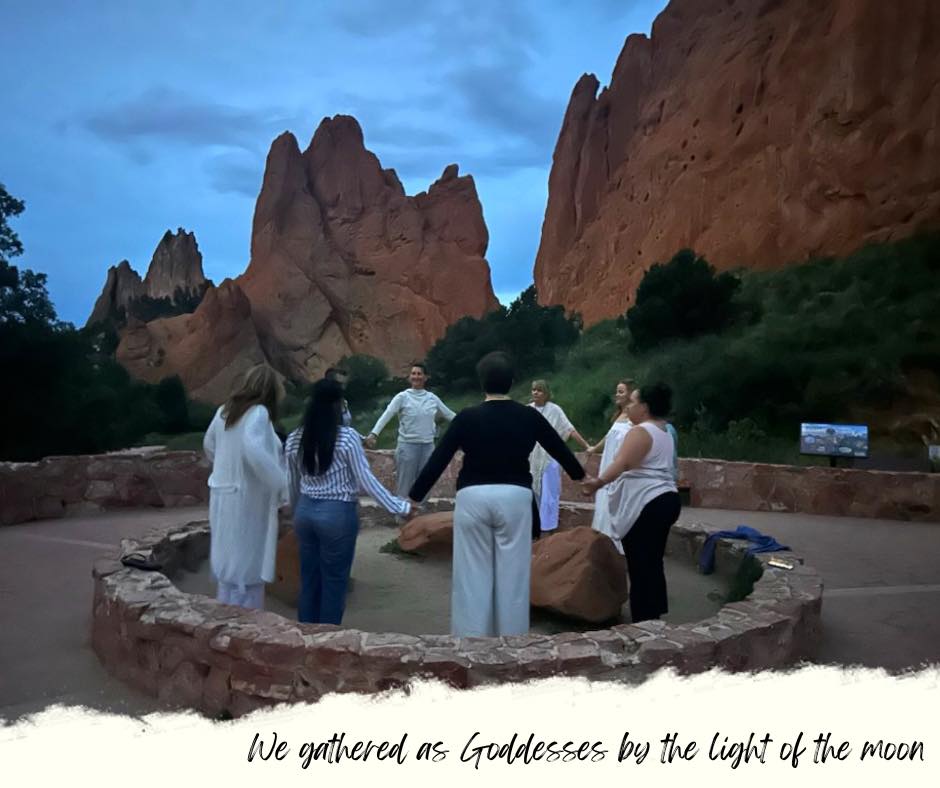
On our final night, we had a surprise full-moon ceremony at the gorgeous Garden of the Gods (Goddesses!) How wonderful that the park was open at night!
As we stood together, hand in hand, an overwhelming sense of gratitude and love filled my soul. Maybe it was the mushrooms building the new pathways in my brain. I felt the presence of past spirits, the moon, the sisterhood, the wind, the magnificent universe.. and God. Maybe I’ve become more woo-woo after all. It was magical.


